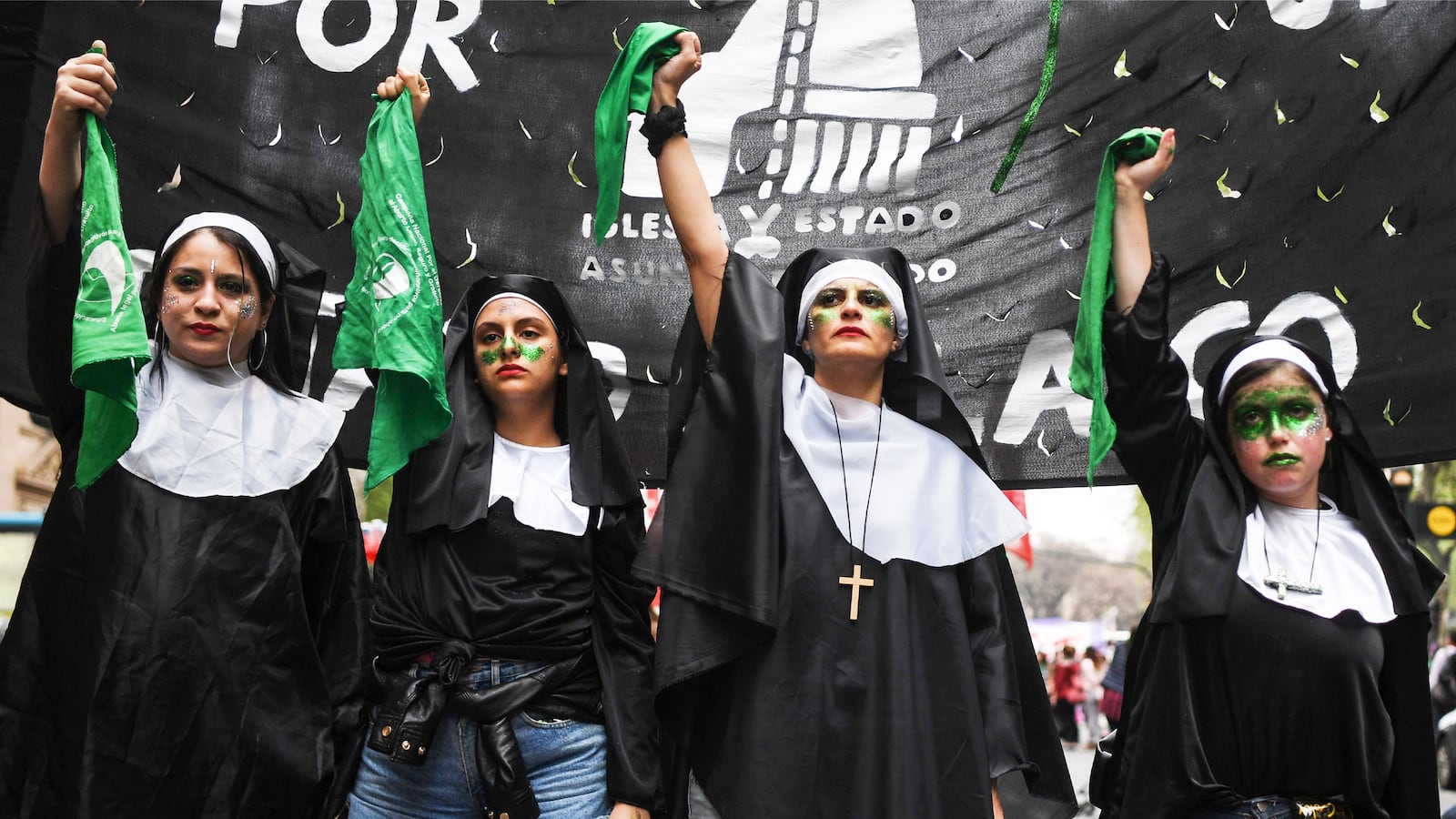An 11-year-old Argentinian girl raped by her grandmother’s partner pleaded with her hospital eight separate times for an abortion, advocates say. On Tuesday, at 23 weeks pregnant, she gave birth via cesarean section to a 1.3-lb baby after being denied an abortion for more than a month.
The case of “Lucia,” who is using a pseudonym to protect her privacy, has ignited the debate over abortion in Argentina, where it remains difficult to access the procedure even in cases of rape or health concerns.
Lucia first checked into the hospital in late January complaining of stomach pains, according to local news reports. She eventually revealed to doctors that her grandmother’s 65-year-old partner had sexually abused her. The doctors confirmed she was pregnant, but by then she was already 19 weeks along.
Gustavo Vigliocco, the Secretary of Health of Tucumán, a conservative northern province, initially told Argentine media that officials did not perform an abortion because the child wanted to carry her baby to term. He dismissed safety concerns around the plan, saying the pre-teen was “big in build” and weighed “more than 50 kilos."
But Mariana Paterlini of human rights organization Andhes, which filed a brief in Lucia’s case, told The Daily Beast the girl had requested an abortion eight different times—including at the criminal trial for her abuser, who is currently awaiting sentencing.
Paterlini also dismissed the state’s claims that Lucia’s mother had failed to register her consent for the abortion in a timely manner.
“She didn’t know where to send it because she doesn’t write or read, so she was not completely aware of her rights,” Paterlini said. “She talked with us, her will was public, but nobody helped her … That’s where the state failed.”
Andhes Derechos Humanos stepped in earlier this month after hearing about the case in the local media. Along with human rights group Cladem, they asked a judge to compel the state to perform the abortion. Forcing a girl to carry a baby to term in these conditions, they wrote, “is a form of torture and degrading treatment that seriously affects the girl's human rights.”
On Tuesday, under the judge’s orders, the Tucumán health system announced it would end the pregnancy. Even then, however, officials implored the hospital director to “continue with the procedures necessary to attempt to save both lives”—a common refrain among anti-abortion campaigners in the country. A communications director for the Tucumán Supreme Court later had to confirm that the judge had not, in fact, ordered doctors to save both lives.
The procedure itself proved full of hurdles. To start, the state was forced to call in two private doctors to perform it, after every doctor in the hospital declared themselves an objector. Then, the doctors discovered that the girl’s body could not support a surgical abortion. They performed a cesarean section instead, leaving the 11-year-old with a baby weighing just over one pound. The infant is not expected to survive.
In follow-up interviews, Dr. Cecilia Ousset quickly dispensed with the secretary of health's version of events, telling Radio Nacional Tucumán the girl did not weigh nearly 50 kilos. Seeing her for the first time in the hospital, Ousset said, she was shocked by how small the girl looked.
"The child played with dolls,” she said. “When I saw her my legs trembled, it was like seeing my youngest daughter. The little girl did not fully understand what was going to happen.”
The incident bore striking resemblance to a story from the month before, when a 12-year-old girl in Jujuy provence requested an abortion after allegedly being raped by a 60-year-old man. The government denied her request, citing her advanced gestation, and forced her to give birth to a 24-week-old baby via c-section on Jan. 18. The baby died four days later.
Paterlini said she felt conservative officials were delaying abortion requests as much as possible in order to force victims into having cesarean sections.
“People are very upset, especially the human rights movement and feminist movement in Argentina,” she said. “We want the girl protected but also the responsible people in the state punished.”
“Because they are public officials, it doesn't matter what they personally believe or what they think,” she added. “They should implement the law.”






